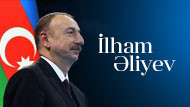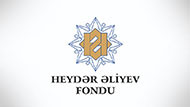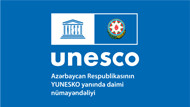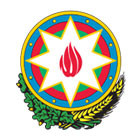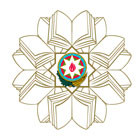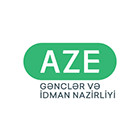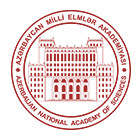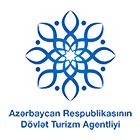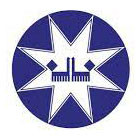Permanent delegate: UNESCO can join monitoring of destruction of rich cultural heritage in Azerbaijan’s occupied lands
2018-01-22By Leman Zeynalova – Trend:
Trend’s interview with the Permanent Delegate of Azerbaijan to UNESCO Anar Karimov.
Question: On January 16, the Minister of Foreign Affairs of Azerbaijan Elmar Mammadyarov during his meeting with UNESCO Director General, Audrey Azoulay, invited UNESCO to conduct a monitoring mission in the occupied territories of Azerbaijan. What is your view regarding the reaction in Armenian media to this issue?
Answer: As you have already mentioned, on January 16, a meeting was held between Elmar Mammadyarov and the newly elected Director-General of UNESCO Audrey Azoulay. The meeting was held in a constructive manner and in the spirit of cooperation. The future scope of further cooperation between Azerbaijan and UNESCO was discussed as part of the meeting. During the meeting, the minister also informed the director general about the facts of deliberate destruction of our cultural heritage in the occupied territories of Azerbaijan, noting that these facts were confirmed by the OSCE missions and invited UNESCO to participate in such missions in the future. We would like to note that in 2012-2013, our country as a member of the Committee for the Protection of Cultural Property in the Event of Armed Conflict proposed to organize such a mission, however a mission did not take place because of protests from Armenia. In addition, we have established a basis of the strategy document on the protection of cultural properties in the occupied territories under the aforementioned committee. With respect to the news in the Armenian media, in particular the statement issued by the illegal separatist regime established in the occupied Nagorno-Karabakh region of Azerbaijan, I would like to emphasize that these ideas are not truthful, inaccurate and cannot even be taken seriously. Moreover, they claim that there are three mosques belonging to the Azerbaijani people in Nagorno-Karabakh, and they are restored and protected. This is completely false.
According to the official statistics, as a result of occupation of the territories of Azerbaijan 738 cultural monuments, including 28 museums containing more than 83.500 exhibition samples, 4 photography galleries, 14 memorial complexes, 1107 cultural institutions and more than 50 mosques have been completely destroyed or seriously damaged. This represents a grave crime against the cultural heritage of Azerbaijan and is in violation of numerous norms of international law, including the UNESCO 1954 Hague Convention and the 1970 UNESCO Convention. Also I would like to mention that the cultural properties belonging to the people of Azerbaijan are not deliberately destroyed only in the occupied territories, but also in the territories of the current Armenia.
As an example we can mention several cases. Excluding the Blue Mosque which is currently functions as a cultural center in Yerevan, hundreds of other our mosques (Abbas Mirze mosque, Muhammed Khan mosque, Shah Abbas mosque, Novruzeli Bey mosque, Zali Khan mosque, Haji Imam Verdi mosque, Aga Dede and etc,.) were completely destroyed. So there is only one true reason of destruction of our cultural heritage and this is the attempt to wipe out all evidence regarding the links of people of Azerbaijan to its historic lands. This is the policy of cultural terror and cultural cleansing implemented by Armenia since the beginning of 20th century until nowadays. Such anti- human and illegal policy can never gain success. Contrary to Armenia – which is the only mono-ethnic state in the multi-ethnic region, Azerbaijan as a tolerant and multicultural country is proud with his historic traditions. And it is not coincidence that the Armenian church in the center of Baku is reconstructed on a high level and well preserved. Besides, our country is realizing successful foreign policy with the aim to promote these important values – tolerance and multiculturalism. As an example, we can mention the “Baku Process” initiated by the president of Azerbaijan and The World Forums on Intercultural Dialogue held within this Process. And I want specially emphasize that one of the main international partners of Azerbaijan in realization of this Process is UNESCO.
Q.: What can be done against the deliberate destruction by Armenia of our cultural properties in the occupied territories of Azerbaijan and what can be the role of UNESCO in this process?
A.: As you know, UNESCO is the UN Agency responsible for education, culture and science and we try to use the platform of this international organization to bring the realities of the occupied territories of Azerbaijan to the attention of world community and take the relevant actions against this. The destruction of the cultural property in the event of armed conflicts and their illegal movement is the grave violation of several international law norms and as an example to these norms, we can mention 1954 Hague Convention and UNESCO 1970 Convention among others. As I mentioned before, despite the fact that Armenia has joined to these legally binding instruments, they gravely breach the mentioned international law norms through their policy. Our policy within UNESCO regarding this issue is mainly composed of two directions. Firstly, we try to reveal and prevent the illegal actions of Armenia through relevant legal instruments within UNESCO Conventions and governing bodies. Secondly, we inform UN Member States and wider communities through organization of several events such as round tables, presentations, etc., and their coverage in mass media and social networks. Considering our serious commitment to this important issue, we pay attention to the protection of cultural heritage in the events of armed conflicts, including occupation in the whole world, try to support and contribute to the work of UNESCO in this domain. As an example, I would like to mention that Azerbaijan has significantly contributed to the preparation of UNESCO Military Manual on protection of cultural property in the events of armed conflicts for military officers both in the form of expertise and financial support. With regards to the role of UNESCO in these processes, as our minister mentioned in his last meeting with Director-General, this Organization as a UN Agency responsible for culture and education can join to the process of monitoring of destruction of our rich cultural heritage, culture and education institutions in our occupied territories. Also it is clear that for the resolution of conflict armed forces of Armenia have to withdraw unconditionally from our occupied territories. And after that along with other relevant international organizations, UNESCO according to its mandate can join to the restoration and reconstruction and provide expertise in these territories of Azerbaijan.


